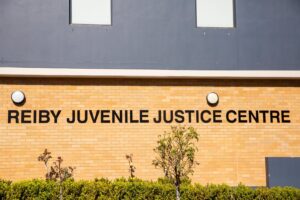Some of the worst child abuse happens in foster care.
Children have been beaten, emotionally and verbally abused, sexually assaulted and harassed. On rural properties, foster children have been used for manual labour, working the land for no financial reward or reason.
The Royal Commission into Institutional Responses to Child Sexual Abuse uncovered hundreds of accounts of abuse in foster care. In private sessions held between 2013 and 2017, 257 survivors revealed they were sexually abused in out-of-home care.
The state of foster care in Australia
Between 2019 and 20, 174,700 (31 per 1,000) Australian children received child protection services (investigation, care and protection order and/or were in out-of-home care).
Approximately 30,600 children had been in out-of-home care for 2 years or more.
The government revealed a record high in foster care abuse. Several hundred cases of abuse were recorded.
Children from very remote areas were three times more likely to be abused by their carers These placements often receive less monitoring, allowing more and more children experiencing abuse to slip through the cracks.
There are also reports of foster children being used as free labour on farms and properties.
Hurdles to jump when fighting foster abuse in the courtroom
Foster care abuse cases have their own particular challenges. There is the challenge of establishing legal liability either:
- In negligence — finding evidence that the Department of Family & Community Services (‘FACS’) knew that a foster child was at risk of abuse by a foster carer yet failed to take appropriate action, or that FACS failed to properly monitor a foster placement thus allowing abuse to go undetected;
- Arguing that FACS is vicariously liable for the abuse of the foster carer.
The legal doctrine of vicarious liability states that a principal is responsible for the actions of someone who is acting as their agent. For example, courts will often find that an employer is vicariously liable for the actions of its employee.
This is because an employee acts under the authority and direction of the employer.
While courts in other countries have ruled that this kind of relationship can exist between a child welfare department and foster carers, this issue is yet to be decided by Australian courts. In fact, the NSW Attorney General has openly expressed an opinion that such a relationship should not exist between FACS and foster carers.
The second challenge is to establish that FACS should be vicariously liable when the wrongful act of the foster carer was intentional (e.g. abuse), rather than negligent. There needs to be a clear connection between what the foster carer was authorised to do and the misconduct which occurred.
For example, physical abuse in the context of discipline, or sexual abuse in the context of bathing.
The major problem with foster care abuse in the current political climate is that FACS will not accept vicarious liability for a foster carer’s criminal actions. This means that victims are forced to fight their cases in court.
There can also be various roadblocks that prevent survivors from making a successful claim against FACS. These roadblocks often relate to a lack of evidence, this is particularly relevant for abuse that occurred decades ago, for example:
- In the past, most children who experienced foster care abuse didn’t speak up;
- Welfare officers often didn’t believe reports of foster care abuse and didn’t record them – meaning we don’t have any evidence;
- Welfare officers were sometimes abusers themselves and didn’t report the abuse;
- Historical reports from children have been lost.
Kelso Lawyers are specialists in fighting foster care abuse
Kelso Lawyers take on cases that aren’t always easy wins. But, the law is on our side in the UK and New Zealand and we believe that the Australian courts will follow.
It’s time for our government to stop avoiding liability for such a serious issue.
It’s time to focus on strengthening child protection systems, catching child abusers early, helping victims recover with early intervention mental health treatment and providing compensation to help ease the healing process.
Used wisely, compensation can be life-changing.
Get the justice you deserve with Kelso Lawyers. We want to hear your story. Call (02) 4907 4200 or complete the online form before you accept payment from the National Redress Scheme.
Image Source: Pexels






